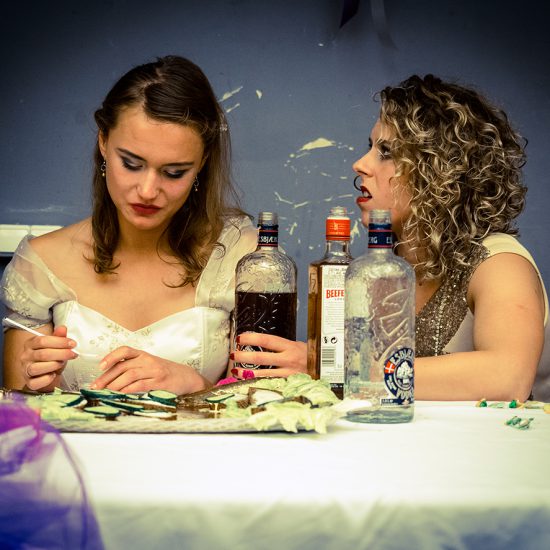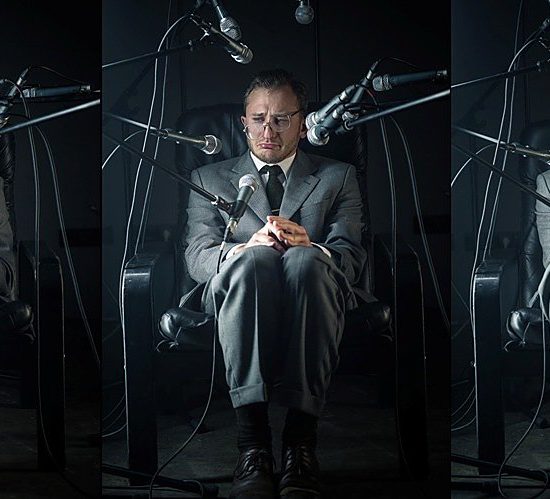Connection – pizzeria, or the black mass of love
The masterly inversion of Oskaras Korsunovas presupposes stunningly unexpected sounding of “Romeo and Juliet” – it seems that the director claims that love has never existed in this world, there has only been an effort to love condemned in advance. Only a chance to try. “The Most Excellent and Lamentable Tragedy of Romeo and Juliet” is both the anthem and the mass for love which is lost between the future and the frequentative past, which has miraculously slipped out of the locked heaven and is trying to make us remember something irretrievably lost. The powerful interpretation. In this aspect Uncle Shakespeare is undeniably urgent at the beginning of the 21st century.
In the finale of the performance fryer Lawrence, acted by Remigijus Vilkaitis, makes a huge copper cauldron-monstrosity turn round. During the whole production the Host of life and death, of love and hatred has been boiling in it, thus, unifying and separating the fighting families of Montague and Capulet. The tense and stiff bodies of R.Samuolyte and G.Ivanauskas spin with vibration until they bury themselves into the cauldron – the music stops and deep theatrical silence prevails; the game is over and the consecrated pizzeria submerges into darkness; just the lonely reflection of a searchlight slowly fading away embraces the bodies of the lovers for the last time. They craved for light too much. Let them return to the place they happened to come from for a while. Let them rest in peace buried under bunches of spoons and covered with the wreath-like pastry of eternity on the glittering trays. And let them be covered with the eternal light of footlights. At least in Lithuanian theatre in the nearest future it’s really not going to be easy to wake them up for such a high flight that has been successful for Oskaras Korsunovas.



